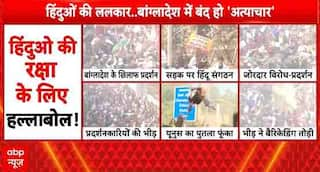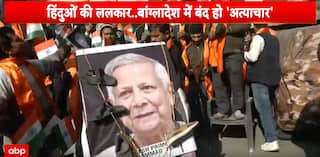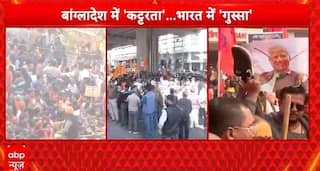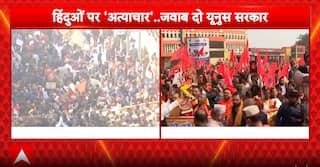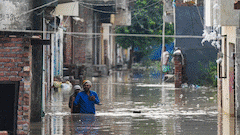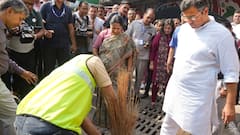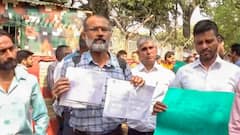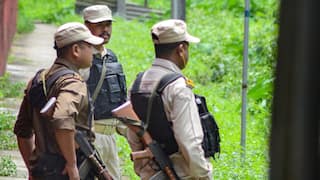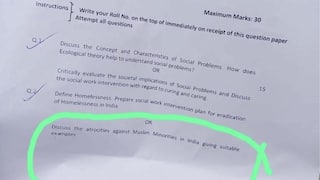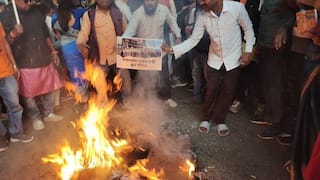Delhi Wakes Up To Thick Blanket Of Smog As Air Quality Remains 'Very Poor'
In view of the poor air quality, CAQM has asked the pollution control boards of Delhi-NCR to ensure deployment of anti-smog guns at construction and demolition sites.

New Delhi: The air quality in the national capital remained ‘very poor’ on Tuesday morning as a layer of smog lingered over the atmosphere with an AQI of 321, reported news agency ANI. As per the data by System of Air Quality and Weather Forecasting And Research (SAFAR), the air quality is expected to remain ‘very poor’ for the next three days.
On Monday, the AQI in the national capital was measured at 326 with lingering smog. The air quality in the national capital regions was also under the ‘very poor’ category with an AQI of 356 in Noida and 364 in Gurugram.
In view of the poor air quality, the Centre’s air quality panel has asked the pollution control boards of Delhi-NCR to ensure deployment of anti-smog guns at construction and demolition sites, an official statement said on Monday, reported news agency PTI.
Delhi's sky lingers in a layer of smog as the overall Air Quality Index (AQI) remains under the 'Very Poor' category, at 321
— ANI (@ANI) November 8, 2022
(Visuals from GT Karnal road, Man Singh road & Lodhi road) pic.twitter.com/U6kUvhy97N
The Commission for Air Quality Management has also recommended other measures, such as the use of wind brokers, dust barrier screens, covering of construction material and its debris, and proper disposal of construction wastes, including transportation in covered vehicles, at these sites, it said.
"At least one anti-smog gun necessary for a total construction area between 5,000 to 10,000 square metre. Two anti-smog guns for an area between 10,001 to 15,000 square metres.
"For a construction area between 15,001 to 20,000 square metre, at least three anti-smog guns are necessary. At least four anti-smog guns should be deployed for a total construction area above 20,000 square metres," the statement from CAQM said.
While the Delhi government decided to reopen primary classes from November 9 and revoke 50 per cent work from home for government employees, it continued to ban plying of BS-III petrol and BS-IV diesel four-wheelers in the national capital under stage 3 of the Graded Response Action Plan.











